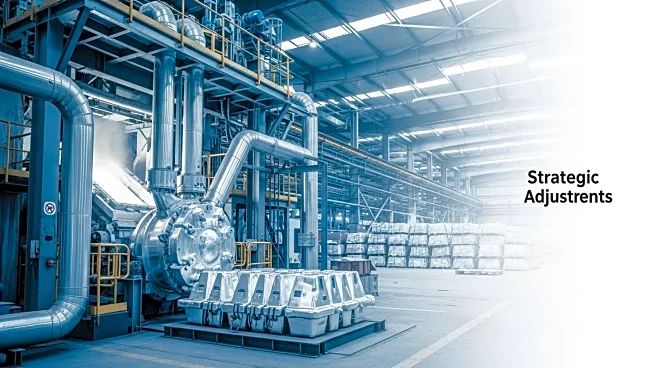What's Happening?
Rio Tinto, a leading aluminum producer, has shifted its strategy in response to President Trump's 50% tariff on aluminum imports. The company, which operates a refinery and five smelters in Quebec, Canada, is now purchasing aluminum from the U.S. market instead of exporting its own metal across the border. This change is driven by the tariffs, which have disrupted North America's integrated metals market and increased aluminum prices above global benchmarks. Rio Tinto's new approach involves buying aluminum ingots from competitors like Alcoa and Emirates Global Aluminum, as well as tapping into U.S. stockpiles.
Why It's Important?
The tariffs imposed by President Trump are reshaping the aluminum industry in North America, affecting producers and consumers alike. For Rio Tinto, the strategic shift to buying aluminum within the U.S. highlights the significant impact of trade policies on business operations. The tariffs are intended to protect American industries, but they also create challenges for companies that rely on cross-border trade. The increased aluminum prices and reliance on U.S. stockpiles could lead to higher costs for American manufacturers and consumers, potentially affecting the broader economy.
What's Next?
As the U.S. aluminum industry struggles to meet domestic demand, companies like Rio Tinto may continue to adapt their strategies to navigate the tariffs. The long-term effects on the industry could include changes in supply chain dynamics and increased investment in U.S. production capacity. Stakeholders, including policymakers and industry leaders, will likely assess the impact of the tariffs on economic growth and trade relations.









